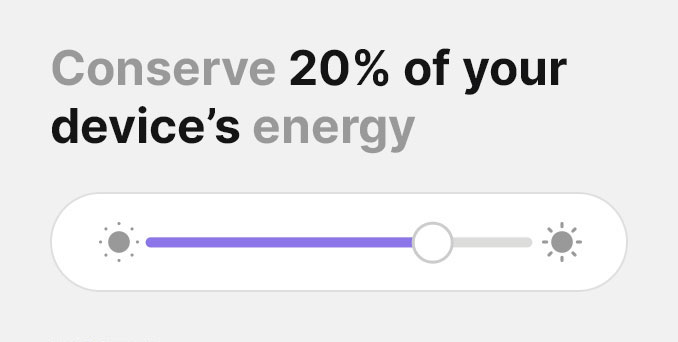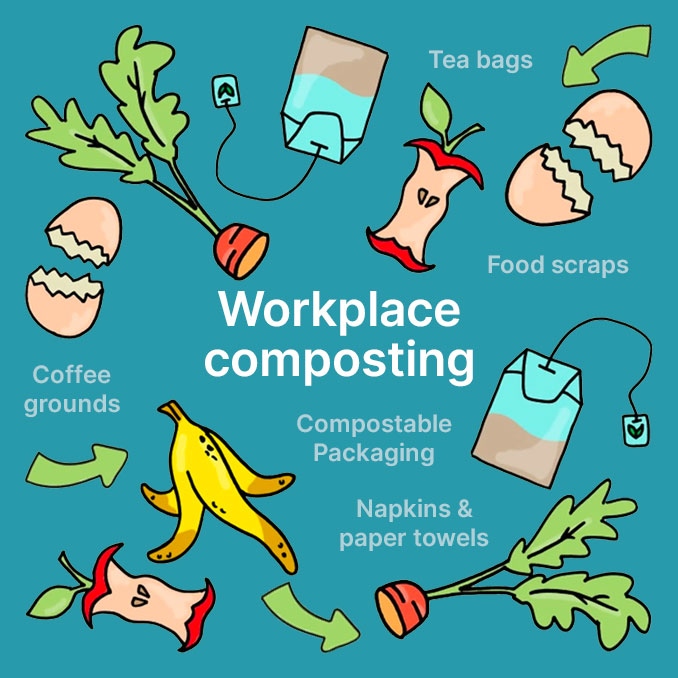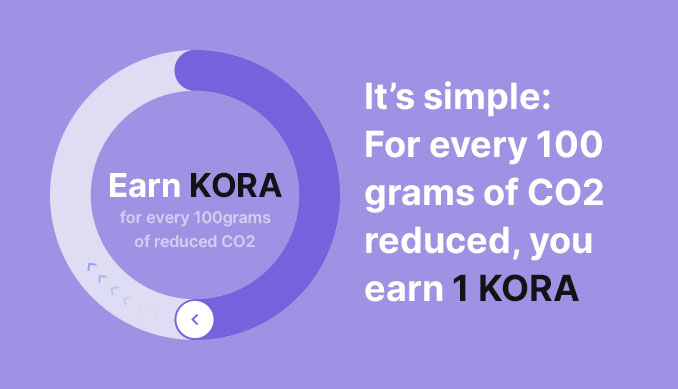The climate emergency is one of the greatest challenges ever faced by humanity, as we look to preserve our planet for future generations. According to the EU’s climate service, 2023 was the planet’s warmest year on record, where temperatures were 1.48C warmer than the long-term average before humans started burning significant quantities of fossil fuels. This is indicative of the very real state of global warming that threatens our survival.
As such, it has never been so important for businesses to prioritise sustainable habits in the workplace. We all spend a significant amount of time at work, during which we are consuming electricity, using paper resources and burning fossil fuels each time we commute. This means that our workplaces make a significant contribution to global carbon emissions, particularly as we become increasingly dependent on energy intensive digital technologies.
Fortunately, more and more workplaces are implementing sustainable initiatives to help tackle climate change and reduce carbon emissions. Everything from in house recycling to hybrid working can help to reduce a company’s carbon footprint, where the actions of each employee can contribute to the overall impact a workplace can have on the environment.
Read on to find out more about some of the best sustainable initiatives you can implement in your workplace.
1. Combat Digital Pollution
Although switching to digital processes in the workplace can help us to use less paper, using computers also contributes to the production of carbon emissions. For instance, it is estimated that a single email can emit approximately 10g of CO2, where many of us are dealing with packed inboxes full of unopened communications. Trying to unsubscribe from unwanted newsletters or making an office wide switch to a sustainable search engine can help to reduce overall workplace pollution levels.
2. Cycle To Work Schemes
Many of us still drive diesel or petrol powered vehicles to work everyday, where this contributes to the overall environmental impact a company has on our planet. Cycle to work schemes can incentivise employees to switch to a greener mode of transport wherever possible. This kind of scheme could include financial rewards for regular cyclers, subsidies for safety equipment and investment in secure bike racks. As a result, employees will drastically reduce their individual carbon footprint, contributing to a company wide reduction in emissions.
3. Support Local Suppliers
All workplaces need to buy in resources to keep their employees happy, where stationery, office chairs and tea bags are necessarily provided to make it easier for staff to do their jobs in comfort. Every purchased item has its own carbon footprint, which is quantified based on how far it has travelled to get to the office. Shopping locally can help to reduce this environmental impact, especially if products are manufactured with sustainability in mind.
4. Adjust Screen Brightness
Something as seemingly insignificant as screen brightness can actually have a big environmental impact. Studies have shown that reducing your computer’s brightness from 100% to 70% can save up to 20% of your device’s energy, reducing the overall carbon emissions produced by the office. This can also help employees by reducing eye strain and the risk of developing headaches. Implementing your device’s dark or night mode is an additional way of saving energy whilst boosting the comfort of your staff.

5. Green Website Hosting
Another sustainable initiative that could be implemented by your workplace is to make the switch to a green web hosting provider. Web servers consume large quantities of electricity, whilst a sustainable hosting company can provide the same service powered by renewable energy sources. This can reduce the overall carbon footprint of your workplace on a daily basis, especially if your company uses digital technologies extensively.
6. Office Composting
Office composting is a straightforward workplace initiative that can contribute to more sustainable habits in the workplace. A communal compost bin can be used to collect food waste and biodegradable packaging, which can be transferred to an external collection point for use on site, or taken to a centralised facility for composting. Waste collection for compost is doubly beneficial in that it reduces office waste and returns organic matter into the carbon lifecycle. This can be especially useful if your workplace has an outdoor space or garden, where this can be maintained using in house compost.

7. Hybrid Working Initiatives
In recent years, many workplaces have embraced hybrid working models, where employees only go to an onsite facility on select days of the week. In addition to boosting productivity, this kind of initiative can also benefit the environment, where recent studies have revealed that hybrid approaches in UK workplaces can reduce carbon emissions by up to 70%. This is because working from home saves electricity when the office is closed, in addition to cutting down on everyday commutes.
8. Paperless Habits
Making a switch to paperless habits in the workplace can safeguard natural resources and reduce waste. This means only printing documents when strictly necessary and sharing resources between staff using digital formats. In addition to the environmental benefits, this approach can also help to streamline daily operations, where files can be shared at the touch of a button. Paperless working also means that it is much easier for employees to correct and update important information. This initiative can go beyond the workplace and into a company’s approach to marketing. Digital advertising should be prioritised over paper based methods, where flyering a neighbourhood or distributing leaflets should be phased out.
9. Zero Waste Areas
Creating communal zero waste areas is an additional sustainability initiative that can foster tangible results. This means creating a kitchen space where employees are encouraged to avoid waste, where there might be free access to reusable cups, storage containers and communal resources. Bathroom facilities can also be transformed into zero waste zones with the installation of energy conscious toilets and waste free hand trying methods.
10. KORA Sustainability
If you’re looking for a modern and exciting new sustainability initiative for your workplace then look no further than the KORA Sustainability app. KORA is a sustainable reward scheme that measures your climate positive activities. For every 100 grams of CO2 you avoid or reduce, the app will reward you with 1 KORA. These points then add up to give you real life rewards.

This is a scheme that can be rolled out across your business, where monitoring sustainable employee activity can help you to reach your decarbonisation goals. Beyond this, there are numerous benefits to be gained from the KORA approach to sustainability. Demonstrating that you’re actively working to cut carbon emissions is great for your brand identity, where customers are always on the lookout for companies that prioritise the environment. Our app can also help your staff retention levels, where your team will love how their small sustainable changes add up to tangible rewards.
There’s no better time to prioritise environmentally beneficial initiatives at your workplace. Install our app today to start making real, sustainable changes to the way you work.




